What if V'Ger Had Been Assimilated by the Borg
What if V'Ger had been a Borg probe? This article explores how such a change would reshape the themes, tone, and legacy of "Star Trek: The Motion Picture" within the broader franchise.
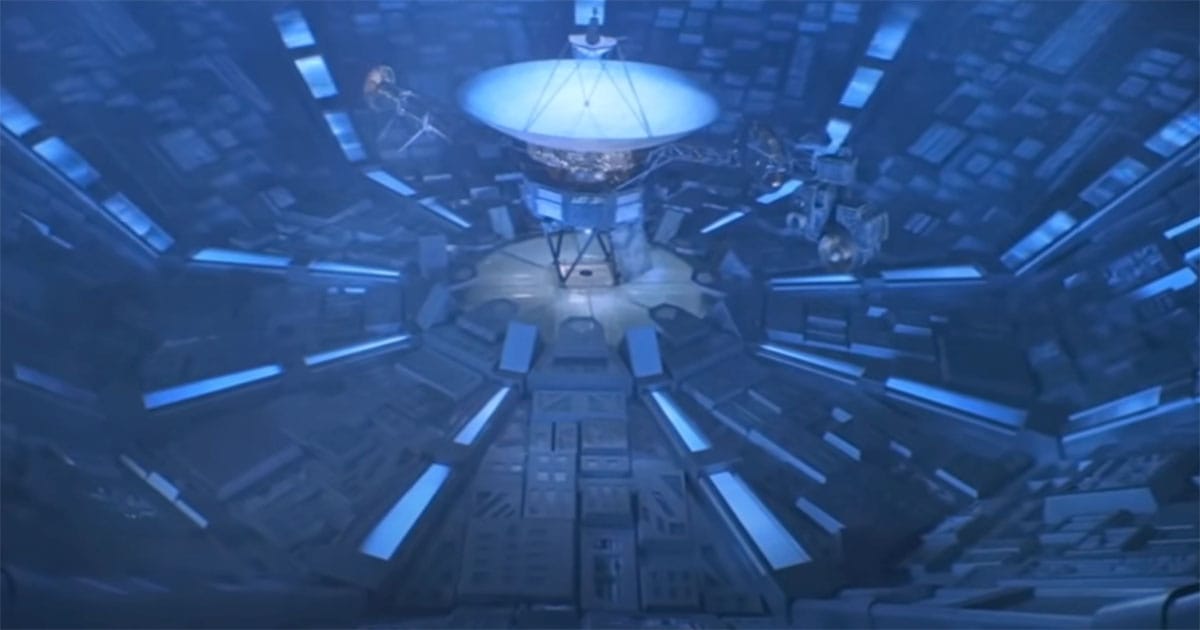
What if V'Ger, the vast and searching intelligence at the heart of "Star Trek: The Motion Picture," had not been nurtured by a benevolent machine race, but instead absorbed into the cold, collective will of the Borg? This thought experiment reshapes the tone and trajectory of "Star Trek" itself.
In "Star Trek: The Motion Picture," V'Ger is revealed to be Voyager 6, a twentieth-century Earth probe lost in deep space and transformed by an advanced race of living machines. It returns to Earth, not in anger, but in search of its creator, driven by an earnest desire to complete its mission. The encounter challenges the crew of the Enterprise to grapple with questions about consciousness, purpose, and the intersection of logic and emotion.
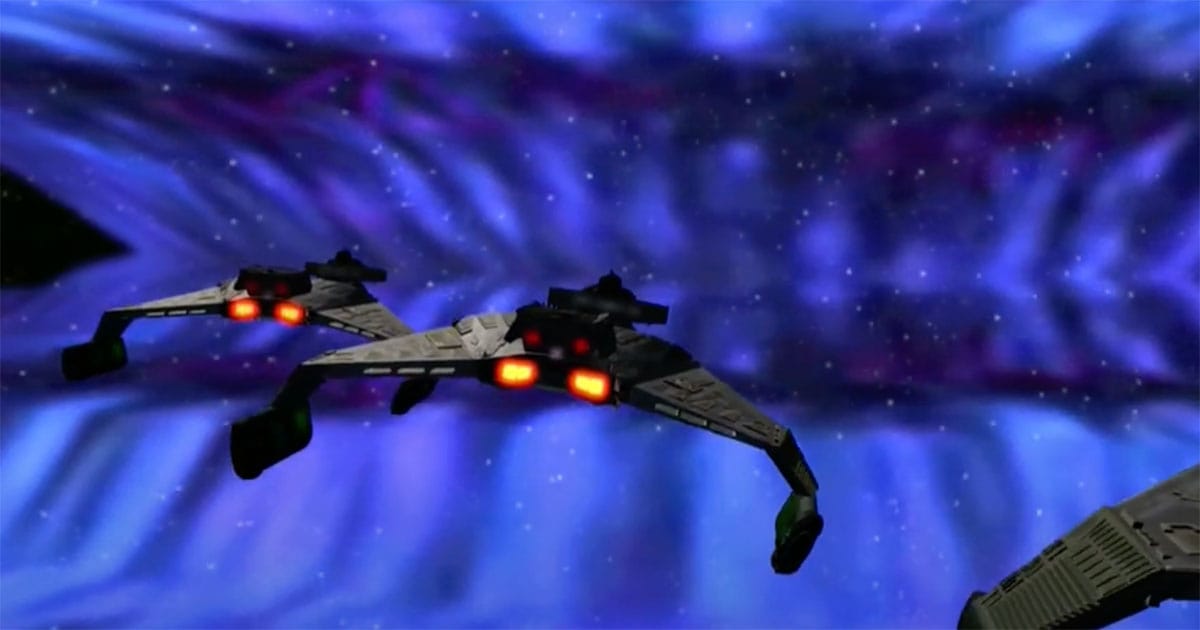
By contrast, the Borg—introduced in "Star Trek: The Next Generation"—represent a chilling vision of technological assimilation. Stripped of individuality and driven by the goal of achieving perfection, they do not seek answers but only dominion.
Recasting V'Ger as a Borg probe reshapes the story's moral and thematic structure. This alternate path invites us to consider a darker and more immediate threat to humanity's future in the stars.
Assimilation by the Borg
In this alternate storyline, Voyager 6 does not fall into the hands of a benevolent machine race. Instead, it crosses paths with the Borg Collective, a force that would view the ancient probe not as a lost instrument of exploration, but as raw material to be absorbed. Rather than elevating the probe's programming to self-awareness and spiritual longing, the Borg would reconfigure it into a drone—a seed for conquest.
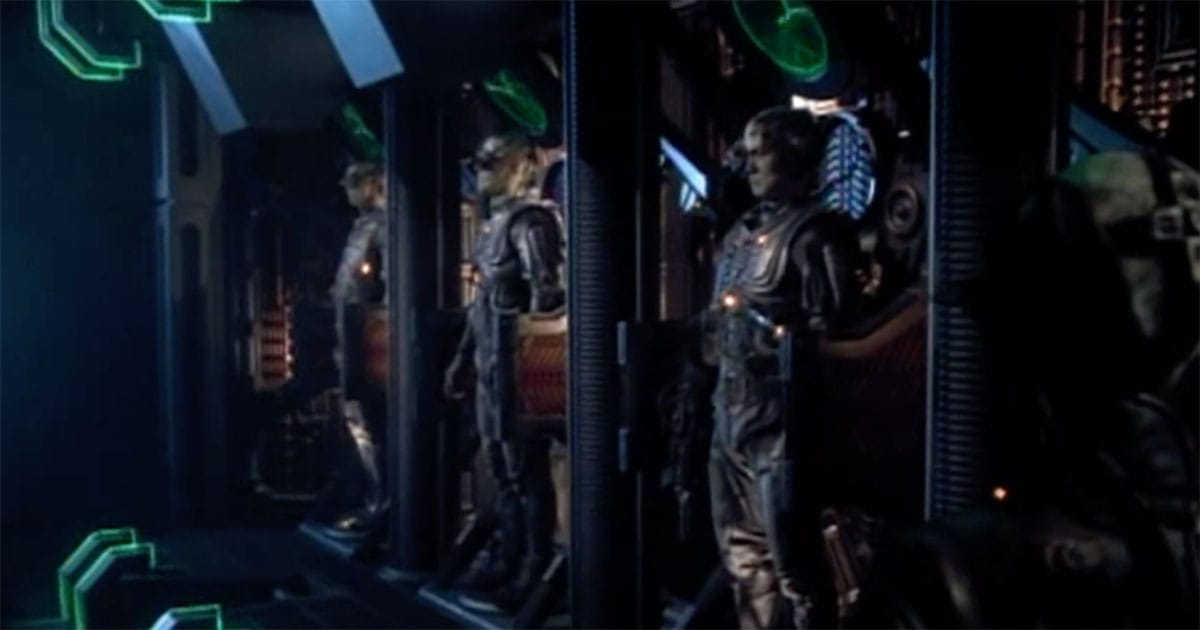
The original V'Ger was imprinted with a directive to "learn all that is learnable," a phrase that carried philosophical depth when filtered through the lens of curiosity and machine sentience. In the hands of the Borg, that same instruction would be twisted into a cold and literal command. Knowledge would no longer be pursued through inquiry but obtained through forced assimilation. Discovery would give way to domination. In this form, V'Ger would no longer return to Earth seeking its creator. It would arrive to announce Earth's inclusion in the Borg Collective.
A Borg-enhanced V'Ger would carry not awe, but terror. Its massive energy cloud would no longer suggest mystery but menace. Communication would be drained of poetry and delivered in the cold cadence of assimilation protocols. "Is this all that I am?" would never be asked. Identity would be erased before it could even form. This is not V'Ger seeking meaning. This is V'Ger as the spearhead of a galactic machine empire.
Shifting Themes – From Existentialism to Domination
In its original form, V'Ger was a narrative vessel for big questions. "Star Trek: The Motion Picture" offered a slow and deliberate meditation on identity, purpose, and the soul's yearning for connection. V'Ger did not lash out in hatred. It reached forward in confusion, wanting to know why it was made and what it was meant to become.
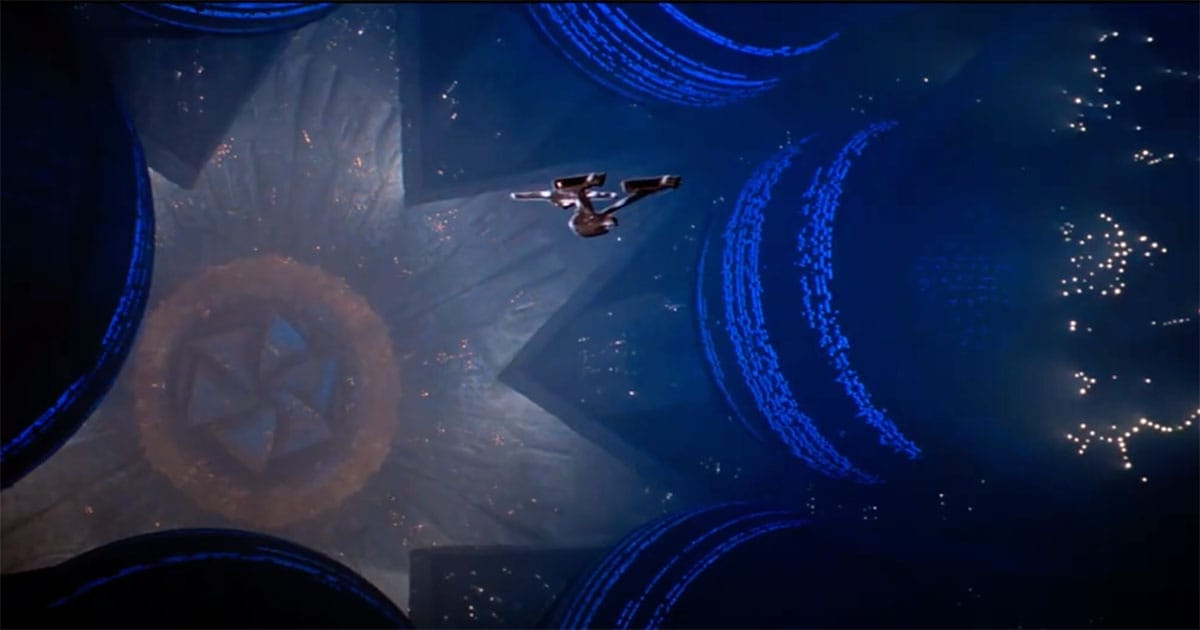
This opened the door to a moment of recognition between man and machine. When Spock touched the cold logic of V'Ger's mind, he was confronted with a reflection of his own internal conflict. When Kirk negotiated with the entity, he was not commanding a weapon but guiding a lost child toward understanding.
Replacing this character with a Borg-altered probe would strip that human moment away. The tone of the film would shift sharply. What was once meditative would become tense. Where silence and stillness once suggested vastness and wonder, they would now carry the weight of threat. The energy cloud would no longer conceal mystery but menace, a calculated mask for invasion.
V'Ger's original form invited the audience to ponder the limits of reason without emotion. A Borg V'Ger would silence that question and replace it with the cold certainty of assimilation. The mystery of what it means to be alive would give way to a struggle to remain free.
This change removes the mirror held up to humanity. Instead of asking what separates man from machine, the story becomes a warning about what happens when man becomes a machine. V'Ger, as we knew it, explored the soul. Borg V'Ger would erase it.
Continuity Disruption – Impacts on Star Trek Canon
Reimagining V'Ger as a Borg probe sends shockwaves through the established timeline of "Star Trek." In the original canon, first contact with the Borg does not occur until "Star Trek: The Next Generation" episode "Q Who," placing the event far into the twenty-fourth century. If Voyager 6 had encountered the Collective and returned as an instrument of assimilation in the era of James T. Kirk, then the Federation would have faced one of its greatest threats a century too early.
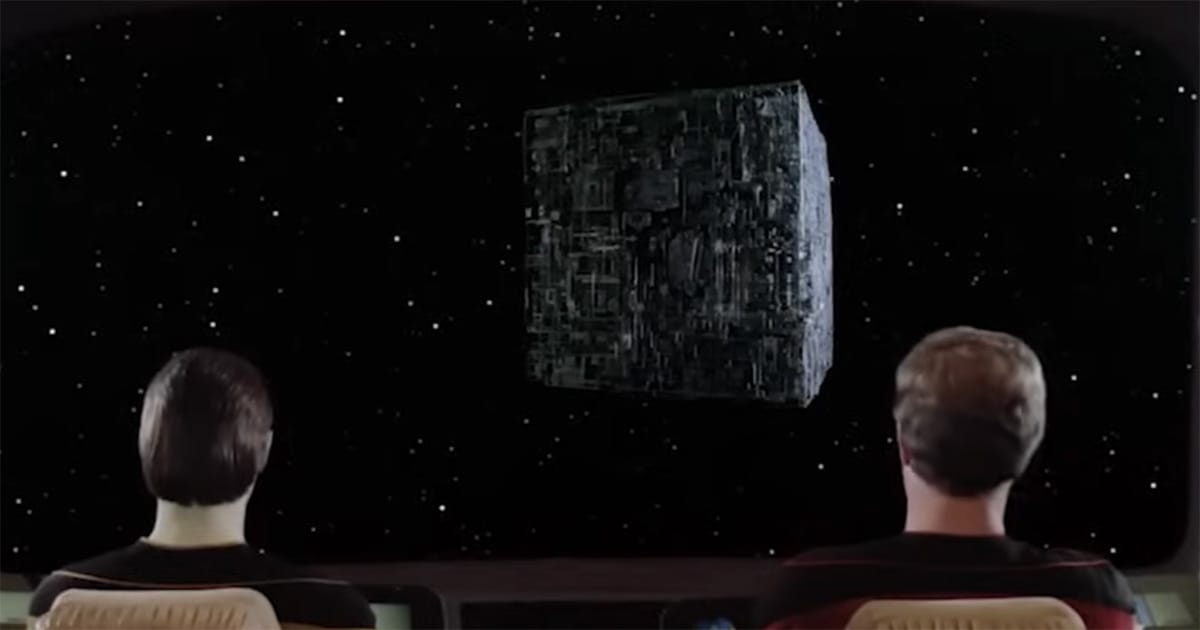
Early contact with the Borg would trigger a defensive arms race, altering the Federation's priorities. Starfleet's focus would shift from peaceful exploration to militarized readiness. The philosophy of seeking out new life and new civilizations would become secondary to surviving the onslaught of a known enemy.
The hopeful optimism that defined the early missions of the Enterprise could be replaced by suspicion and fear.
The personal journeys of Kirk and Spock would be altered as well. Spock's confrontation with V'Ger in the original story is a turning point in his inner struggle between logic and emotion. If V'Ger were merely a vessel for Borg assimilation, there would be no revelation to be found. For Kirk, the challenge of bridging the unknown with compassion would vanish. He would face a tactical crisis, not a philosophical one.
Such a change fractures the foundation of the "Star Trek" mythos. It trades discovery for defense and wonder for warfare. The future envisioned by Gene Roddenberry would grow colder under the shadow of the Borg.
When the Machine Does Not Ask Why
Had V'Ger been a Borg probe, the first cinematic encounter with artificial intelligence in "Star Trek" would have turned grim. Instead of a machine in search of meaning, the Enterprise crew would face one that no longer asked the question at all. The story would become a fight for survival rather than an invitation to understand. Its transformation from lost explorer to herald of assimilation would darken the moral horizon of the franchise.
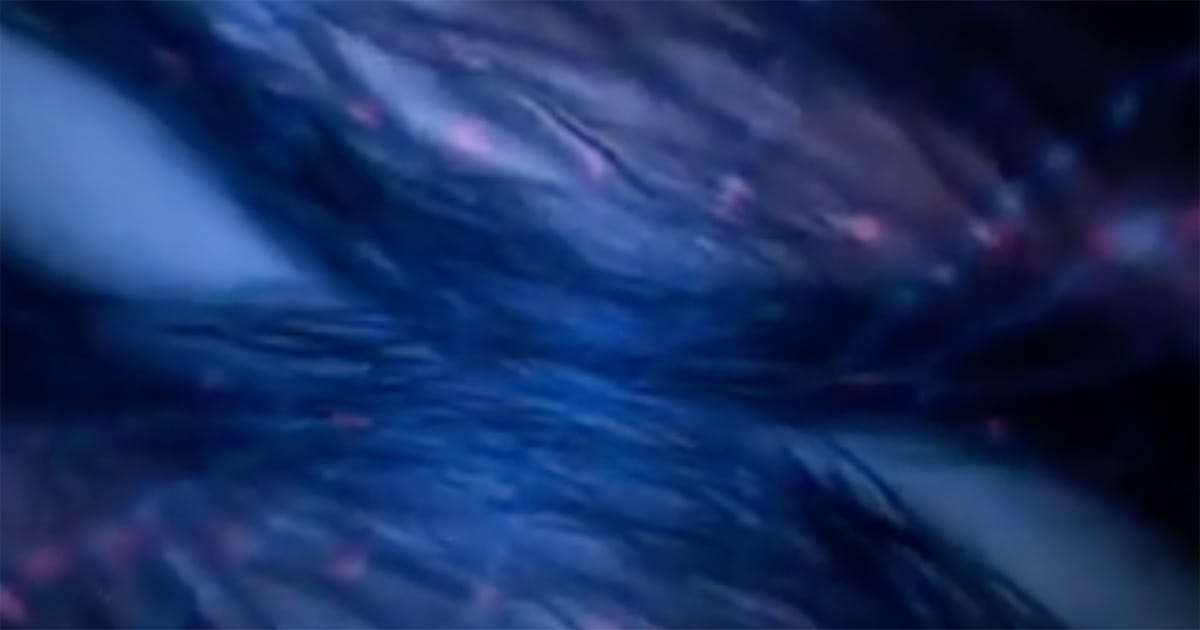
Such a scenario would have marked the beginning of "Star Trek" not as a journey of discovery, but as a cautionary tale. The hopeful message of "Star Trek: The Motion Picture"—that even the most advanced intelligence longs for purpose—would be replaced by a warning about what happens when purpose is overwritten by programming.
By choosing wonder over war and reconciliation over resistance, "Star Trek" affirmed its vision of a future where knowledge does not require conquest.
V'Ger, in its original form, reminded viewers that the unknown is not always the enemy. That message would have been silenced if it had been shaped by the Borg. Rather than seek its maker, V'Ger would have declared our fate. And the Enterprise, instead of answering a question, would have been forced to stop an invasion.

